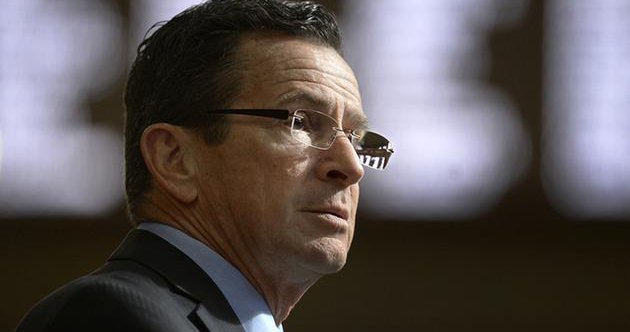After Republican leaders in Connecticut’s state legislature passed a budget proposal with bipartisan support and no new tax increases over the weekend in an effort to end the state’s months-long fiscal crisis, Failed Democrat Governor Dan Malloy responded by pledging to veto it. Even after prominent lawmakers of his own party repudiated his catastrophic tax-and-spend agenda to join their GOP colleagues, Malloy decided to double down on the same policies that drove Connecticut into economic disaster and budgetary chaos.
But with the 2018 gubernatorial election drawing nearer and the state’s budget issues still not resolved, Malloy’s decision raises a serious question for Democrats hoping to succeed him. Had they been in his shoes, would they have done the same and chosen to veto the bipartisan budget passed by state lawmakers? While Middletown Mayor Dan Drew’s running mate, State Representative Liz Linehan, sided with Malloy, voting against the budget, Lieutenant Governor Nancy Wyman, who is still considering a gubernatorial bid, remained silent on whether she agreed with Malloy. Other Democrats like Chris Mattei and Dita Bhargava also have yet to weigh in on whether they agree with Malloy.
Connecticut voters deserve to know exactly where their gubernatorial candidates stand when it comes to fixing the state’s budget woes. Will they support bipartisan solutions to keep the state running without imposing more job-killing tax hikes? Or will they reject compromise and continue down the disastrous road Dan Malloy has led Connecticut on for the last seven years?
The Hartford Courant has more:
A clear message emerged amid the turmoil when the General Assembly adopted a Republican budget Friday: The days of one party rule may finally be ending in Connecticut.
And while Gov. Dannel P. Malloy has promised to veto the Republican budget adopted by the General Assembly Friday night, legislators now must craft a bipartisan solution….
Republicans, with the help of a handful of worried Democrats, rejected a two-year budget that was written by Malloy and top Democratic leaders that included new taxes on monthly cellphone bills, vacation homes and nonprescription drugs. The bill would have raised the cigarette tax by 45 cents to $4.35 per pack on Nov. 1, along with increased taxes on smokeless tobacco, hospitals and hotel rooms.
Instead, the Republican budget calls for major changes, including forcing the legislature to approve all union contracts, along with enacting a constitutional spending cap and an annual bonding cap. It would also allow municipalities to override binding arbitration decisions on union contracts by the local legislative councils after a two-thirds vote.






